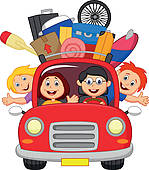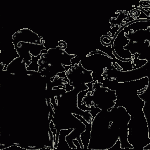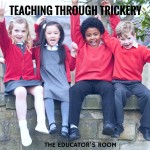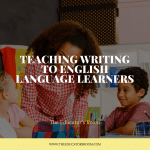[fusion_builder_container hundred_percent=”yes” overflow=”visible”][fusion_builder_row][fusion_builder_column type=”1_1″ background_position=”left top” background_color=”” border_size=”” border_color=”” border_style=”solid” spacing=”yes” background_image=”” background_repeat=”no-repeat” padding=”” margin_top=”0px” margin_bottom=”0px” class=”” id=”” animation_type=”” animation_speed=”0.3″ animation_direction=”left” hide_on_mobile=”no” center_content=”no” min_height=”none”]
Reluctantly, summer ends, school begins and I am already wistful for the undefined pace of unhurried days. Summer offers us all our best educational experiences; learning to swim, ride bikes, plan adventures and tuck into reading. I can’t help but wonder if the lessons of summer can manifest into achievable goals for the upcoming school year rich in engagement, risk and wonder.
The single most important activity that adults can have with children is a meaningful conversation and summer affords plenty. Morning that begin with “what would you like to do today?” offer choice and possibility. Most of the year finds me falling into the rut of talking about groceries, homework, house chores, etc. I make excuses about being too tired to play card games or sing songs. Inevitably children are tuned to television or internet as an escape while bills are sorted or dinner is made. Being disengaged becomes a reward. Maybe this is why millions of students nationwide are struggling to reading with proficiency (Read to Learn, 2003).
Vacation began with excited conversations about where our family would go and what we hoped to do. Many hours were spend with various resources plotting routes, campsites and adventures with the list of activities longer than the actual adventures. Some were spent locally and some west of the Mississippi. Long flights and long car rides meant raiding the library for travel guides and summer novels or perusing audible.com for audio books. This summer I heard three volumes of Sister’s Grimm and enough pop music to transform Selena Gomez songs into homemade ballads about our discovery of slot canyons. In our rental Kia we took turns tapping out beats of the Cups song and studying the blue dot movements of Google maps. We still rely on old fashioned paper maps too. It was fun to speculate which map was most accurate or guesstimate arrival times based on driving speed and the quality of the roads. Hole in the Road, Utah was but one place that everyone should take a chance on just for the conversations that revolve around surviving its remoteness.
Summer adventure affords encounters with rich literary experiences in the authentic context of an environment. We understand what happens a million years after a volcanic eruption because we circled a rhyolite lava dome in the New Mexico, Valles (vy ay) Caldera grasslands. Rangers patiently helped us with names and pronunciations as we reported back any and all of our findings. At night each National Park offered slideshow lectures on carnivorous activities of local wildlife. That stimulated many campground discussions through tent walls as we lay avoiding sleep. Vocabulary is pervasive but meaningful experiences with words do not happen unless we make it happen. My daughter busied herself with Junior Ranger guides and kept us all busy in search of striped lizards, Ponderosa pines and petroglyphs. Equally active families often stopped to converse with us, swapping suggestions and stories. While the majority of media and textual sources we encounter daily give us 20-30 challenging word per 1,000 (Birsch, 1999) a simple hike in one of our nation’s national or state parks can raise that by 40%. I improved my own language skills by spending each day without arguing or raising my voice or saying “no”.
Now I am home and getting ready for school to begin. I have a pile of ideas and possible lessons I garnered from the summer travels, but I am constantly reminiscent of those family conversations as the invaluable lesson of summer. It has made me think about the number of minutes that my students spend sitting and listening in a classroom instead of the minutes spent in conversation. Fluency and reading comprehension need explicit attention in most classrooms including mine but the lack of authentic experiences can prevent students from connecting to meaningful language. I can not take all students on cross-country field trips, but I can give students more connections with challenging vocabulary. I can increase the opportunities to talk about the meaning of words, to turn ideas into songs, to speculate and sketch and idea before it is seen as an image or video. Discussing what we think we know in comparison to what we gain from a shared experience is a simple means to an end. Presenting, Car Talks Weekly. Maybe I can entice students to think about the time they spend on buses or in cars riding to school and to turn that time into opportunity. Those who engage in the most unusual, deliberate or humorous car conversation in relation to challenging, classroom concepts would be rewarded. To converse and then present that conversation to the class would count as homework. I will need to develop a sliding scale for length or depth of engagement but I could trust students to assess themselves. Or the class could assess an individual based on presentation. Maybe the overall winner of the year could earn a day pass to a national park. I would have to rise to the challenge with my own family and the time we spend in the car. Maybe a deliberate car talk about carnivorous creatures along our Vermont dirt road will help us hold onto that summer vacation just a bit longer.
[/fusion_builder_column][/fusion_builder_row][/fusion_builder_container]






I would also add that the loss of show and tell doesn’t help. We have twin ker’s and a 4th er. Show and tell should be a resource! Choosing what you will discuss, then coming up with the discussion, learning how to speak to an audience (and conversely learning how to sit through some one else’s presentation). Then the building that can be done throughout the years.
Thank you for bringing relevance to the richness of experience!